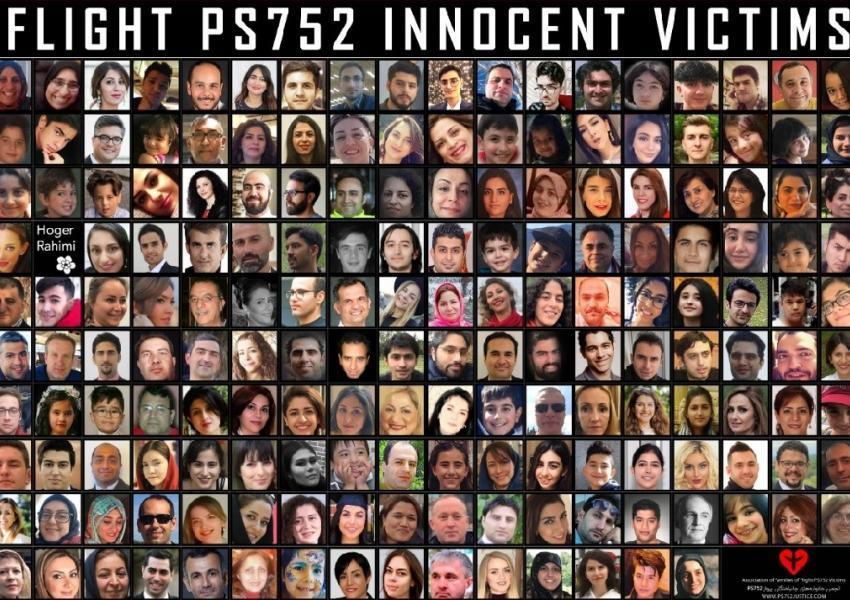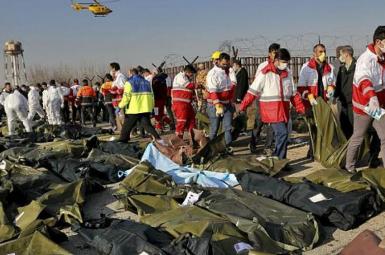
As Iran Indicts Ten, Canada Wants Answers On Downed Ukrainian Plane
Canada on Tuesday [April 6] expressed disappointment over a lack of transparency in Iran’s announcement that ten people had been indicted over shooting down a Ukrainian commercial airliner in January 2020, when 55 Canadian nationals and 30 permanent residents were among 176 passengers and crew killed.
“We remain deeply concerned about the lack of convincing information and evidence provided by Iran, including the lack of detail around these indictments,” the foreign ministry said in response to an inquiry from Iran International. “Canada remains committed to seeking answers and justice by holding Iran accountable and by ensuring it takes full responsibility and makes full reparations for the harm caused to the families and loved ones of the victims of Flight PS752.”
Tehran’s military prosecutor Gholam Abbas Torki announced the indictments Tuesday [April 6], saying the ten would face a military court. Ukrainian Flight PS752 was downed by two surface-to-air missiles shortly after take off from Tehran on January 8, hours after Iran attacked two US bases in Iraq in response to an American drone strike that killed Iranian general Qasem Soleimani and nine others in Baghdad.
Torki did not name the ten, nor explain the charges or their alleged role in the incident. Iran has said the missiles were fired by a mobile battery operated by Revolutionary Guards (IRGC).
Tehran has offered $150,000 in compensation for each victim, while families have opened legal action in Canadian and reportedly American courts. Iran has been pressuring family members in Iran to remain silent.
Iran for two days refused to admit that missiles had brought down the plane, and later blamed human error, with an operator inaccurately aligning equipment at a time of high alert, as well as communications failure.
Both Ukraine and Canada have criticized Iran’s handling of the aftermath of the disaster, including the account offered by Iran's Civil Aviation Organization (CAO) in its report issued in March. The report did not name the missile-defense operator or operators, nor confirm which part of Iran’s armed forces had operated the missile battery.
A report from a special advisor to the Canadian prime minister in December, while called for wide international reforms in the handling civilian air disasters with military involvement, argued that the process had been hindered by Canada’s lack of diplomatic relations with Iran and by the designation of the IRGC, or parts of it, as ‘terrorists.’





